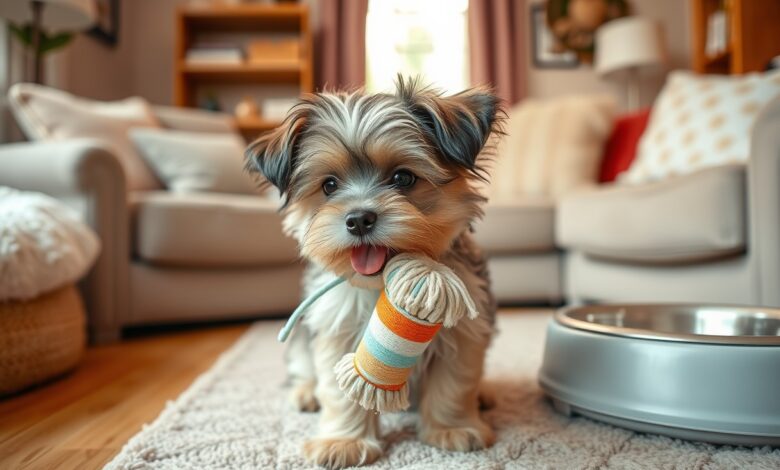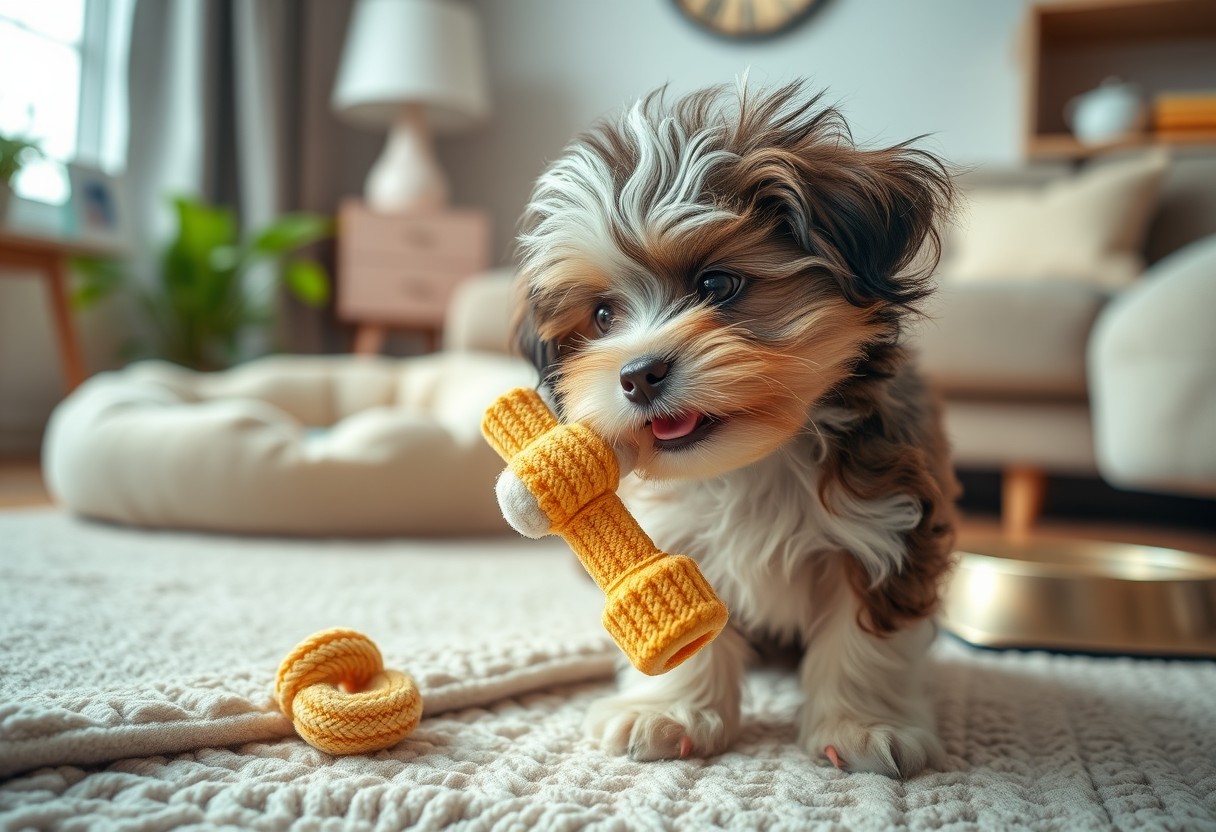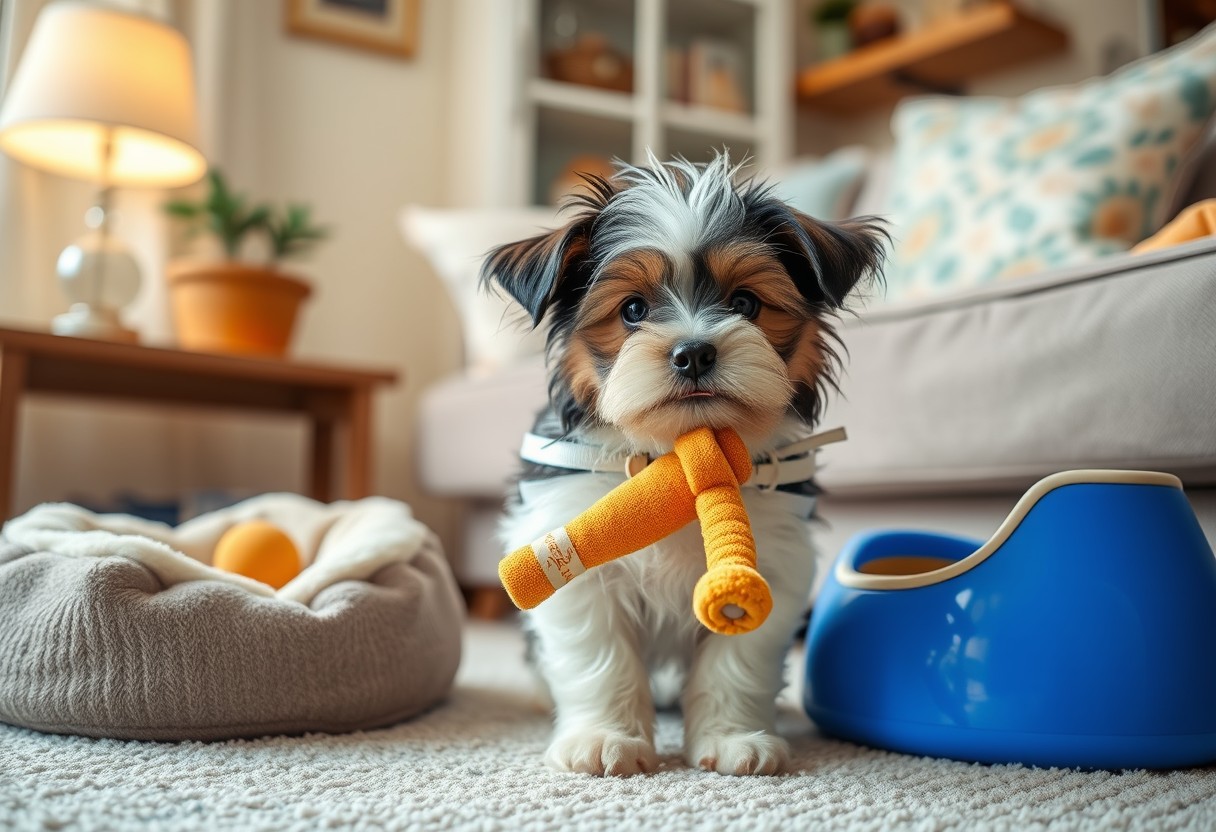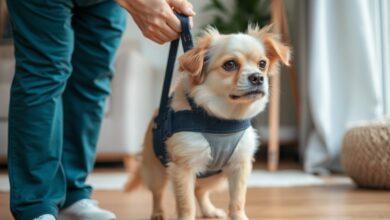When Will My Havanese Puppy Calm Down? 5 Tips

You may be wondering when your Havanese puppy will finally settle down and stop bouncing off the walls. These adorable, fluffy bundles of energy are known for their playful and spirited nature, which can sometimes feel overwhelming. But don’t worry! In this post, we’ll share 5 practical tips to help you manage your pup’s energy levels and create a more peaceful environment. With a little patience and these techniques, you can enjoy the delightful companionship of your Havanese while encouraging them to unwind when needed.
Key Takeaways:
- Understanding Behavior: Havanese puppies are naturally energetic and playful, and their calming down phase can vary between 1 to 3 years of age.
- Consistency is Key: Implementing a consistent routine with regular exercise, training, and socialization can help manage their energy levels effectively.
- Patience and Positive Reinforcement: Positive reinforcement training methods can promote good behavior and help your puppy learn to relax over time.

Understanding Havanese Energy Levels
For many new Havanese owners, understanding their puppy’s energy levels is key to anticipating and managing their behavior. Havanese are known for their lively and playful nature, often exhibiting bursts of energy that can catch you off guard. With the right knowledge, you can channel their exuberance into constructive play and training, helping your pup develop into a calm companion.
Typical Havanese Behavior
Levels of energy in Havanese puppies can fluctuate throughout the day, with high bursts often following naps or meals. Expect playful antics, spontaneous zoomies, and a persistent desire to engage with you. Havanese thrive on social interaction, making them affectionate companions that often seek your attention and approval, resulting in a delightful, yet sometimes overwhelming, experience for new owners.
Factors Influencing Calmness
Understanding the factors that influence your Havanese’s calmness can help you manage their energy levels effectively.
- Consistent exercise is crucial for releasing pent-up energy.
- Engagement in training and mental stimulation keeps their minds occupied.
- Socialization with other dogs teaches appropriate behaviors.
- The environment, including noise levels and activity, can greatly impact their calmness.
The more you nurture these aspects, the more likely your Havanese will settle down.
Understanding how these factors interplay is vital in establishing a calm atmosphere for your Havanese. Providing a balanced routine of exercise and mental challenges can significantly reduce hyperactivity. Additionally, your puppy’s age and temperament play imperative roles, as younger pups tend to have more energy. Creating a secure environment with consistent expectations fosters a sense of calm. The more proactive you are in managing these influences, the smoother your journey will be towards a relaxed, happy Havanese.
Calmness in your Havanese can be cultivated with the right approach, allowing you to enjoy their spirited personalities without feeling overwhelmed. To ensure your pup remains peaceful, consider these factors:
- Daily structured exercise.
- Routine training sessions.
- Positive reinforcement techniques.
- A quiet and stable environment.
The focus should always be on maintaining a healthy balance to enjoy companionship with your playful friend.

Tips for Calming Your Havanese Puppy
Even the most energetic Havanese puppies can learn to relax with the right techniques. Here are some effective tips:
- Prioritize regular exercise and playtime.
- Focus on establishing a routine to provide structure.
- Utilize positive reinforcement training to encourage calm behavior.
- Create a calm environment to help soothe your puppy.
- Incorporate relaxation techniques to promote tranquility.
Thou will see improvements in your puppy’s behavior with consistency.
Regular Exercise and Playtime
The best way to help your Havanese puppy unwind is through regular exercise and playtime. Engaging in daily walks, interactive fetch sessions, and playful activities will not only burn off their abundant energy but also strengthen your bond.
Establishing a Routine
Regular routines are crucial for your puppy’s development and can aid in calming them down. Dogs thrive on predictability, so consistent feeding, play, and nap times help them manage their energy levels.
Plus, a routine can also help reduce anxiety, as your Havanese will know what to expect throughout the day. Consistency provides a secure atmosphere, enabling them to feel more relaxed.
Positive Reinforcement Training
Training your Havanese with positive reinforcement is important to encouraging calm behavior. Rewarding good actions with treats, praise, or playtime will help your puppy associate being calm with positive experiences.
To enhance training, set realistic expectations and celebrate the small victories. The more successful interactions you have, the better your puppy will understand what behaviors yield rewards, reinforcing their calm demeanor.
Creating a Calm Environment
For your Havanese puppy to feel at ease, creating a calm environment is necessary. Choose a quiet space for their bed and provide cozy blankets and toys to foster relaxation.
Establishing a designated resting area allows them to retreat when they feel overstimulated. Soft music or white noise machines can also contribute to a peaceful atmosphere, encouraging your puppy to chill out.
Utilizing Relaxation Techniques
Establishing relaxation techniques, such as gentle massages or calming scents, can greatly benefit your Havanese puppy. This will help them unwind and feel secure in their environment.
For instance, using important oils like lavender (in low concentrations) can have a soothing effect. Always monitor their reaction and consult your vet to ensure any method you use is safe and appropriate for your puppy.
When to Seek Professional Help
Keep an eye out for signs that your Havanese puppy may need professional help. Sometimes, despite your best efforts, a puppy’s behavior can become overwhelming or concerning. If you notice persistent issues such as excessive barking, aggression, or separation anxiety, it might be time to consult a dog trainer or behaviorist to ensure your puppy receives the guidance they need.
Signs Your Puppy Needs Extra Assistance
Seek help if your puppy displays consistent fear, anxiety, or aggression towards people and other pets. If basic training techniques aren’t improving their behavior or if they struggle to adjust to new environments, these are key indicators that your furry friend could benefit from expert advice.
Choosing the Right Trainer
An crucial part of finding the right help for your Havanese puppy involves thoroughly vetting potential trainers. Look for someone who uses positive reinforcement techniques, as these methods work best with your breed’s affectionate nature. Ensure they are experienced with puppies and come highly recommended by other pet owners or veterinarians.
Plus, consider asking potential trainers about their training philosophy and techniques. You want someone who prioritizes your puppy’s well-being and who can tailor their approach to fit your unique needs. A trainer with good credentials, positive client testimonials, and the ability to create a fun learning environment can help your Havanese puppy not just behave better but also strengthen your bond with them.
To wrap up
Ultimately, understanding when your Havanese puppy will calm down is a journey that requires patience and love. By implementing the five tips discussed, you can help your furry friend develop good habits, which will ease their energy levels over time. Bear in mind, every puppy is unique, and it may take a little while for yours to find their groove. Enjoy this exciting stage of their life, and cherish the moments—you’ll both benefit from a calmer, more balanced companion in the long run!
FAQ
Q: At what age do Havanese puppies typically start to calm down?
A: Havanese puppies usually begin to calm down between the ages of 6 to 18 months. However, this varies by individual dog. During their early months, they are naturally energetic and playful, but as they mature and their energy levels stabilize, you can expect them to become more relaxed. Consistent training, socialization, and mental stimulation can also contribute to calming their exuberance.
Q: What are some effective training techniques to help my Havanese calm down?
A: Various training techniques can assist in calming a Havanese puppy. Here are a few effective methods:
1. Consistent Routines: Establish a daily routine for feeding, walking, and playtime. Predictability helps your puppy feel secure and reduces anxiety.
2. Positive Reinforcement: Use treats and praise to reward calm behaviors. This encourages them to repeat those behaviors in the future.
3. Basic Commands: Teach basic commands such as “sit,” “stay,” and “down.” These commands help manage their energy and improve impulse control.
4. Structured Exercise: Engage in regular physical activities appropriate for their age and energy level. Burn off excess energy to make it easier for them to relax afterward.
5. Calm Environment: Create a peaceful space in your home with cozy bedding and toys, allowing them to retreat when feeling overwhelmed.
Q: Are there any activities or strategies to incorporate into my routine to help my Havanese puppy settle down?
A: Yes, here are some activities and strategies to help your Havanese puppy settle:
1. Interactive Toys: Use puzzle toys to engage their minds. Mental stimulation can tire them out just as much as physical exercise.
2. Short Training Sessions: Incorporate brief training sessions throughout the day to encourage focus and discipline. Keep sessions fun and engaging to maintain their interest.
3. Socialization: Gradually expose your puppy to different environments, people, and other dogs. A well-socialized dog is often more relaxed and comfortable in various situations.
4. Calming Music or Sounds: Some dogs respond positively to calming music or white noise. These sounds can create a tranquil atmosphere for your puppy.
5. Gentle Massage: Giving your puppy a gentle massage can help soothe them, reduce anxiety, and promote relaxation.





